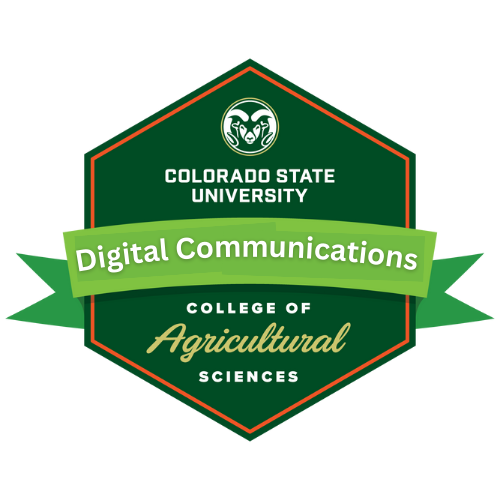Extension Foundation Online Campus
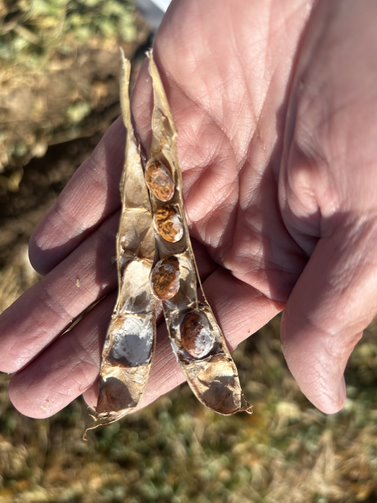
This course section is specifically for Pesticide Applicators working on CEUs with the Colorado Department of Agriculture's Licensing Program
Summary: Seed can serve as a pathway for introducing plant diseases and other pests to new environments and new countries. The risk to agriculture is very high should a new pathogen become introduced and established in an important crop. Seed of over 300 species of plants are moved globally, often several times before being sold commercially. Therefore, the removal or management of seed borne disease is imperative to protect global agriculture and trade. This course is seventh in a series which will walk you through foundational concepts of seed conditioning.
Upskill Credentials: If you finish the entire course including passing the quiz with a score of 80% or better (which you can take up to 3 times) and filling out the short 5 mins feedback survey, then you will earn a badge certificate of completion. This course has been approved for 2 Integrated Pest Management CEUs through the national Certified Crop Adviser program and 1 credit Continuing Education Credit with the Colorado Department of Agriculture for licensed Colorado qualified supervisors, certified operators, and private applicators.
Time Required: We estimate it will take you 1-2 hours in total to complete the course. You can work on it at your own pace and do not have to complete it in one setting.
ADA Accessibility: We have done our best to follow ADA best practices. Let us know if you run into any problems or require further accommodations.
If you have any questions, please contact your instructor, Laura Pottorff, M.S., Director of Seed Program at: Laura.Pottorff@colostate.edu
Acknowledgements: This online micro-credential upskilling course is offered through the CSU Ag Upskilling program. This material is based upon work that is supported by the National Institute of Food and Agriculture, U.S. Department of Agriculture, under award number 2024-68018-42796, administered by Colorado State University. USDA is an equal opportunity employer and service provider. Any opinions, findings, conclusions, or recommendations expressed in this publication are those of the author(s) and do not necessarily reflect the view of the U.S. Department of Agriculture.

The enrollment fee for this course is $50.
You may also choose to purchase all 7 of the CSU Upskilling Seed Conditioning Courses for a discounted price of $300, please contact Deana Namuth-Covert at Deana.namuth-covert@colostate.edu.
- Teacher: Tamla Blunt
- Teacher: Deana Namuth-Covert
- Teacher: Rick Novak
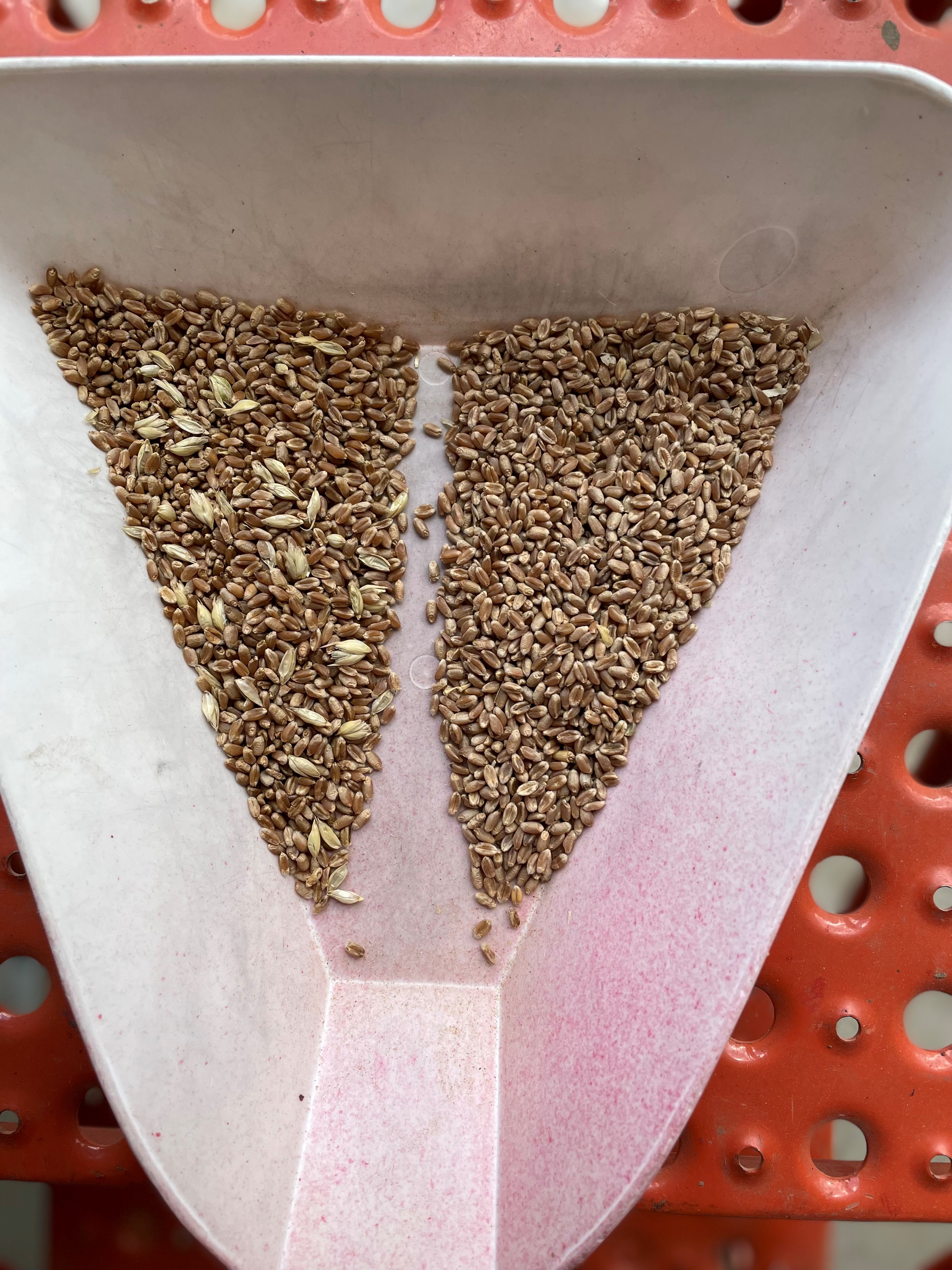
Summary: Seed that comes from the field is never pure, it contains sticks, stems, debris, soil, weed and other crop seeds, trash, and insects. In its simplest form, conditioning is the process of cleaning the seed and removing impurities and contaminates so that the end user receives pure, high-quality seed ready for planting. This course is first in a series which will walk you through foundational concepts of seed conditioning.
Upskill Credentials: If you finish the entire course including passing the quiz with a score of 80% or better (which you can take up to 3 times) and filling out the short 5 mins feedback survey, then you will earn a badge certificate of completion. This course has been approved for 2 Crop Management CEUs through the national Certified Crop Adviser program.
Time Required: We estimate it will take you 2 hours in total to complete the course. You can work on it at your own pace and do not have to complete it in one setting.
ADA Accessibility: We have done our best to follow ADA best practices. Let us know if you run into any problems or require further accommodations.
If you have any questions, please contact your instructor, Laura Pottorff, M.S., Director of Seed Program at: Laura.Pottorff@colostate.edu
Acknowledgements: This online micro-credential upskilling course is offered through the CSU Ag Upskilling program. Development of this content was supported in part by funding from SyncUp Colorado, administered by Colorado State University (2022).
The enrollment fee for this course is $50.
You may also choose to purchase all 7 of the CSU Upskilling Seed Conditioning Courses for a discounted price of $300. To do so, click the link below.
- Teacher: Tamla Blunt
- Teacher: Deana Namuth-Covert
- Teacher: Rick Novak
- Teacher: Laura Pottorff
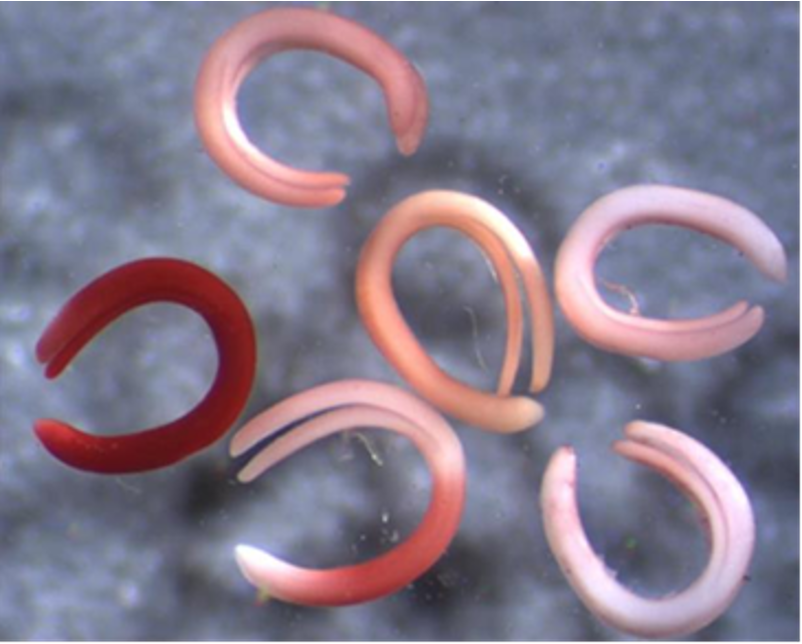
Summary: Seed conditioners play a unique role in modern seed production. Conditioners have the power to increase the quality of poor seed, and decrease the quality of good seed. While a grower has the ability to fine tune the conditions under which the seed crop is grown with fertilizer and water inputs, pest control and tillage to maximize quality, it is up to the conditioner to create the highest quality product out of what they are given. This course is second in a series which will walk you through foundational concepts of seed conditioning.
Upskill Credentials: If you finish the entire course including passing the quiz with a score of 80% or better (which you can take up to 3 times) and filling out the short 5 mins feedback survey, then you will earn a badge certificate of completion. This course has been approved for 2 Crop Management CEUs through the national Certified Crop Adviser program.
Time Required: We estimate it will take you 2 hours in total to complete the course. You can work on it at your own pace and do not have to complete it in one setting. Click on the eBook link below to begin.
ADA Accessibility: We have done our best to follow ADA best practices. Let us know if you run into any problems or require further accommodations.
If you have any questions, please contact your instructor, Laura Pottorff, M.S., Director of Seed Program at: Laura.Pottorff@colostate.edu
Acknowledgements: This online micro-credential upskilling course is offered through the CSU Ag Upskilling program. This material is based upon work that is supported by the National Institute of Food and Agriculture, U.S. Department of Agriculture, under award number 2023-38640-39571 through the Western Sustainable Agriculture Research and Education program under project number WPDP24-021. USDA is an equal opportunity employer and service provider. Any opinions, findings, conclusions, or recommendations expressed in this publication are those of the author(s) and do not necessarily reflect the view of the U.S. Department of Agriculture.
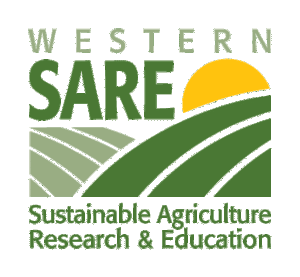
![]()

The enrollment fee for this course is $50.
You may also choose to purchase all 7 of the CSU Upskilling Seed Conditioning Courses for a discounted price of $300. To do so, click the link below.
- Teacher: Tamla Blunt
- Teacher: Deana Namuth-Covert
- Teacher: Rick Novak
- Teacher: Laura Pottorff
Summary: This lesson discusses the importance of plant breeding through history, how one would recognize if the seed they are conditioning is protected by intellectual property rights; and more importantly, what are the mandatory best practices for seed conditioners when handling plant variety protected seed. This course is third in a series which will walk you through foundational concepts of seed conditioning.
Upskill Credentials: If you finish the entire course including passing the quiz with a score of 80% or better (which you can take up to 3 times) and filling out the short 5 mins feedback survey, then you will earn a badge certificate of completion. This course has been approved for 2 Crop Management CEUs through the national Certified Crop Adviser program.
Time Required: We estimate it will take you 2 hours in total to complete the course. You can work on it at your own pace and do not have to complete it in one setting. Click on the eBook link below to begin.
ADA Accessibility: We have done our best to follow ADA best practices. Let us know if you run into any problems or require further accommodations.
If you have any questions, please contact your instructor, Laura Pottorff, M.S., Director of Seed Program at: Laura.Pottorff@colostate.edu
Acknowledgements: This online micro-credential upskilling course is offered through the CSU Ag Upskilling program. This material is based upon work that is supported by the National Institute of Food and Agriculture, U.S. Department of Agriculture, under award number 2023-38640-39571 through the Western Sustainable Agriculture Research and Education program under project number WPDP24-021. USDA is an equal opportunity employer and service provider. Any opinions, findings, conclusions, or recommendations expressed in this publication are those of the author(s) and do not necessarily reflect the view of the U.S. Department of Agriculture.

![]()

The enrollment fee for this course is $50.
You may also choose to purchase all 7 of the CSU Upskill Seed Conditioning Courses for a discounted price of $300. To do so, click the link below.
- Teacher: Tamla Blunt
- Teacher: Deana Namuth-Covert
- Teacher: Rick Novak
- Teacher: Laura Pottorff
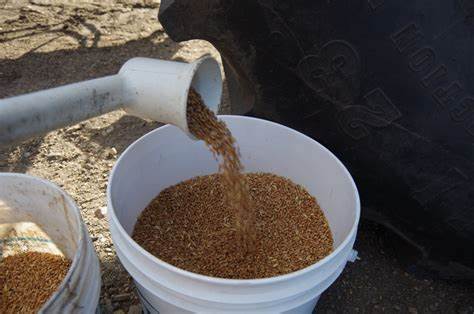
Summary: Seed conditioners process, handle and store seed. All these actions may influence the quality of the seed and therefore the conditioner may share in potential liability should the seed quality be compromised, contaminated or damaged during possession. Documenting the contents of seed received helps protect the conditioner from potential liability. Seed sampling should occur at multiple stages of receiving, processing and handling; it is important to select a representative sample of a seed lot. When a sample is created and viewed by conditioning personnel or sent to a testing laboratory the results obtained from the test are used to indicate the overall quality of the entire lot, make decisions as to what machinery should be used and eventually how to label the finished product. As a result, using a careful and representative method of sampling is required. This course is fourth in a series which will walk you through foundational concepts of seed conditioning.
Upskill Credentials: If you finish the entire course including passing the quiz with a score of 80% or better (which you can take up to 3 times) and filling out the short 5 mins feedback survey, then you will earn a badge certificate of completion. This course has been approved for 2 Crop Management CEUs through the national Certified Crop Adviser program.
Acknowledgements: This online micro-credential upskilling course is offered through the CSU Ag Upskilling program. This material is based upon work that is supported by the National Institute of Food and Agriculture, U.S. Department of Agriculture, under award number 2023-38640-39571 through the Western Sustainable Agriculture Research and Education program under project number WPDP24-021. USDA is an equal opportunity employer and service provider. Any opinions, findings, conclusions, or recommendations expressed in this publication are those of the author(s) and do not necessarily reflect the view of the U.S. Department of Agriculture.

![]()

The enrollment fee for this course is $50.
You may also choose to purchase all 7 of the CSU Upskilling Seed Conditioning Courses for a discounted price of $300. To do so, click the link below.
- Teacher: Tamla Blunt
- Teacher: Deana Namuth-Covert
- Teacher: Rick Novak
- Teacher: Laura Pottorff
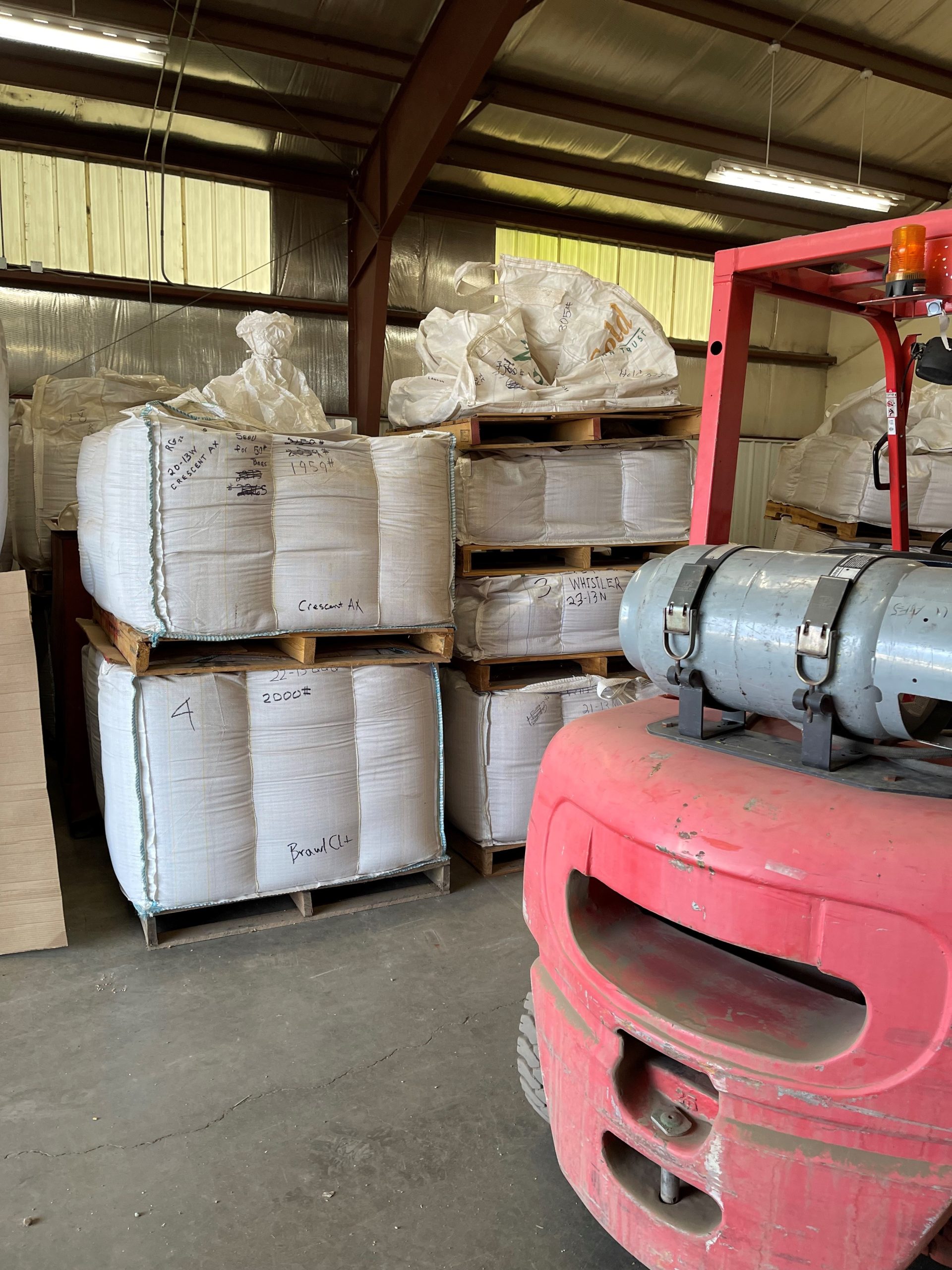
Summary: Seed lots are not always used entirely each planting season. Seed that was purchased or grown this year may require storage to be carried over to subsequent planting seasons. When seed is carried over, it is expected to be of the same quality as seed that was recently produced. As a result, understanding the best possible methods for carrying over seed to maintain high germination and viability is crucial.
This course is sixth in a series which will walk you through foundational concepts of seed conditioning.Upskill Credentials: If you finish the entire course including passing the quiz with a score of 80% or better (which you can take up to 3 times) and filling out the short 5 mins feedback survey, then you will earn a badge certificate of completion. This course has been approved for 2 Crop Management CEUs through the national Certified Crop Adviser program.
Acknowledgements: This online micro-credential upskilling course is offered through the CSU Ag Upskilling program. This material is based upon work that is supported by the National Institute of Food and Agriculture, U.S. Department of Agriculture, under award number 2024-68018-42796, administered by Colorado State University. USDA is an equal opportunity employer and service provider. Any opinions, findings, conclusions, or recommendations expressed in this publication are those of the author(s) and do not necessarily reflect the view of the U.S. Department of Agriculture.

The enrollment fee for this course is $50.
You may also choose to purchase all 7 of the CSU Upskilling Seed Conditioning Courses for a discounted price of $300. To do so, click the link below.
- Teacher: Tamla Blunt
- Teacher: Deana Namuth-Covert
- Teacher: Rick Novak
- Teacher: Laura Pottorff
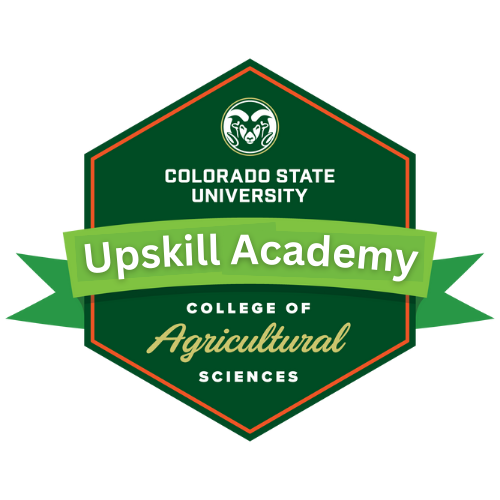
Colorado State University's College of Agricultural Sciences UpSkill Academy connects learners to skills through micro-lessons in agricultural career fields.
Email Deana.Namuth-Covert@colostate.edu to receive an access key code and course instructions.
- Teacher: Tamla Blunt
- Teacher: James Folkestad
- Teacher: Jay Ham
- Teacher: Deana Namuth-Covert
- Teacher: Connie Reimers-Hild
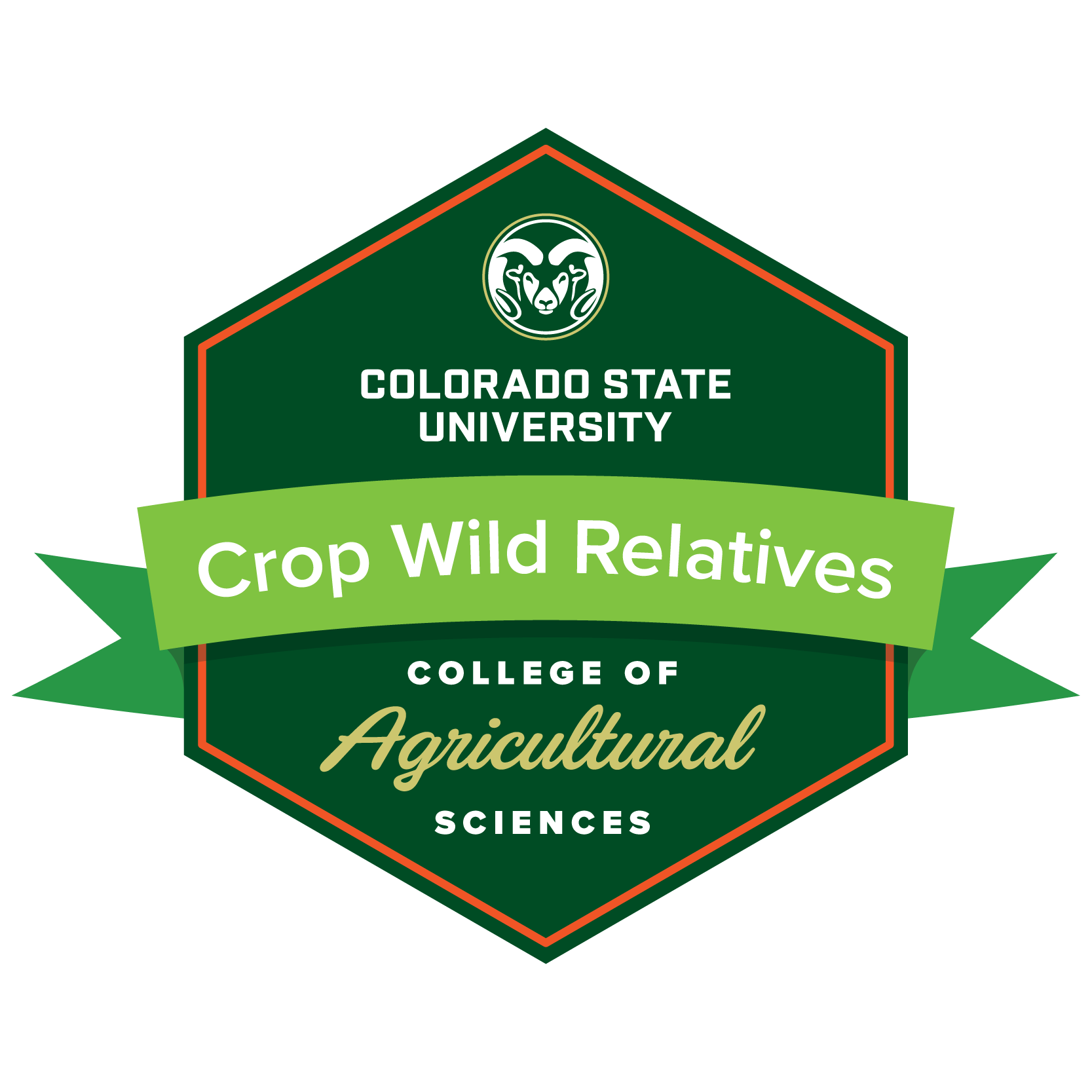
This online mini-course is intended for anyone new to seed science, plant breeding or even general agriculture, about to begin employment in agriculture outside of their family business or wishing to improve their current skills and knowledge.
Development of this Badge Course was made possible through a collaboration between Colorado State University and the United States Department of Agriculture.
This course is supported in part by grant 2020-70003-30930 from the USDA-NIFA Higher Education Challenge Grant Program, administered by Colorado State University. Any opinions, findings, conclusions or recommendations expressed in this publication are those of the author(s) and do not necessarily reflect the views of the USDA-NIFA.

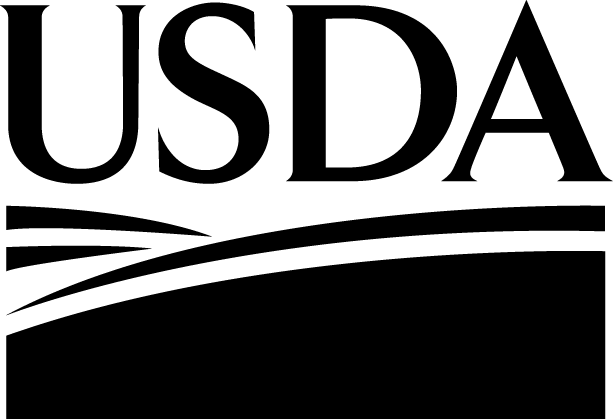
- Teacher: Deana Namuth-Covert
CSU UpSkill teacher and educator supporting resources for using CSU Upskilling badge courses and hands-on activities.
- Teacher: James Folkestad
- Teacher: Kenady Leighton
- Teacher: Deana Namuth-Covert
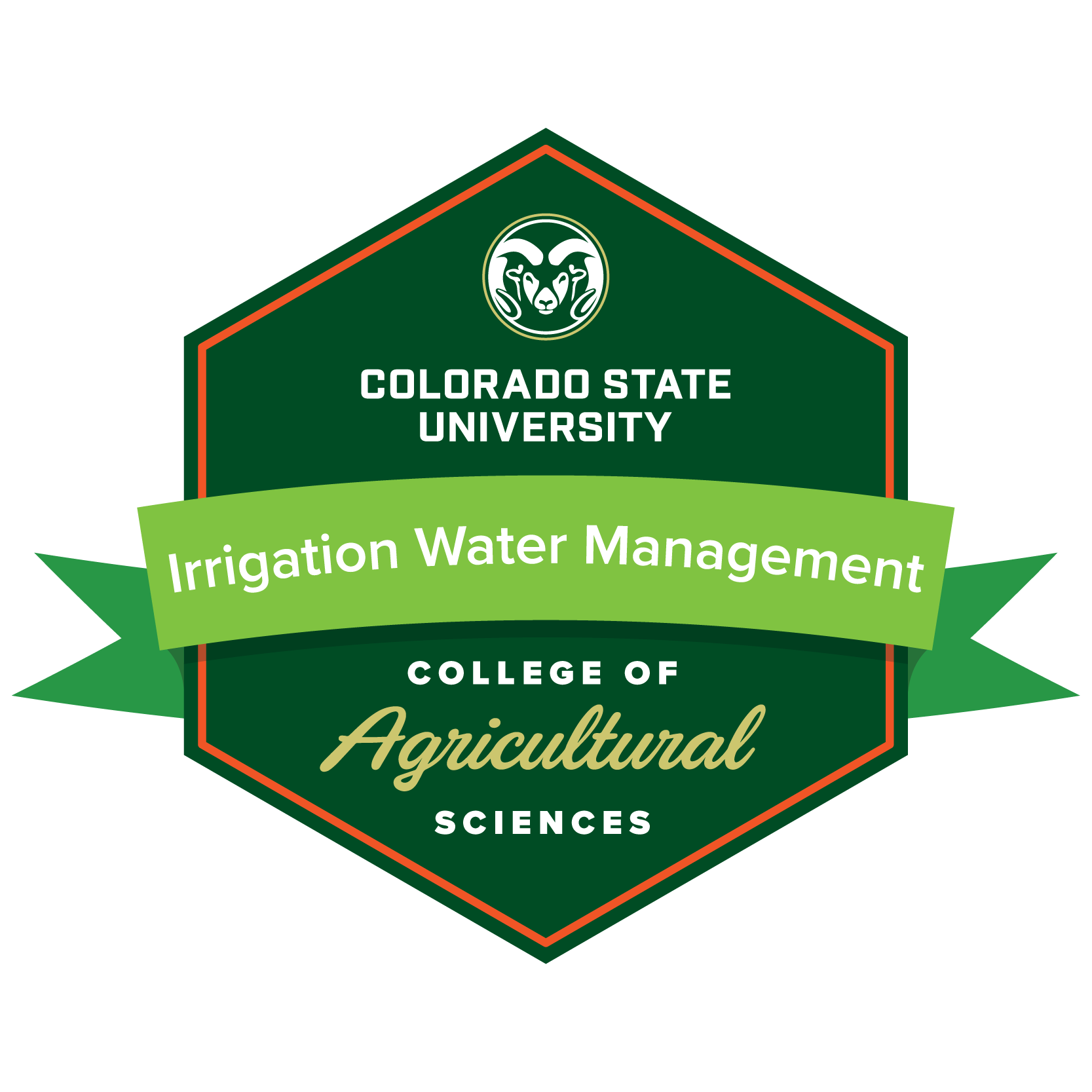
Development of this Badge was supported in part by funding from the CHS Foundation, administered by Colorado State University (2022). The CHS Foundation, funded by charitable gifts from CHS Inc., is focused on developing a new generation of agriculture leaders for life-long success. Together, with our partners, we are igniting innovation and driving excellence in agriculture education, cultivating high impact programs for rural youth and accelerating potential for careers in agriculture.
Learn more at CHS Foundation.
Email Deana.Namuth-Covert@colostate.edu to receive an access key code and course instructions.

- Teacher: Allan Andales
- Teacher: Tamla Blunt
- Teacher: Deana Namuth-Covert
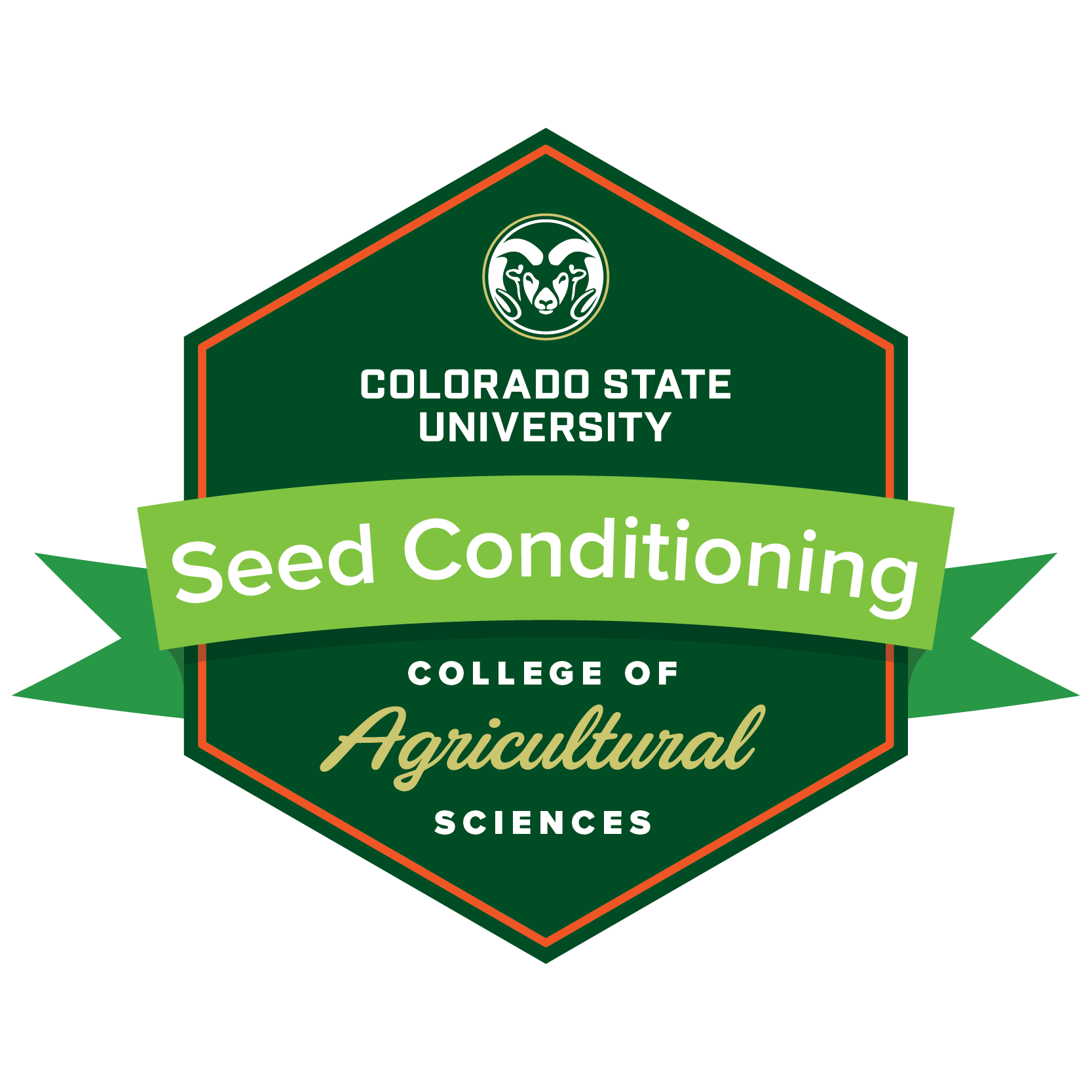
This Seed Conditioning Course is available to high school and college students at no charge thanks to grant funding. It consists of a set of 7 interactive lessons and a final graded quiz. Lessons include: 1) Seed Conditioning Basics, 2) The Influence of Seed Conditioning on Seed Quality, 3) Plant Breeding & Intellectual Property Protection of Seed and Plant Varieties, 4) Sourcing, Sampling and Handling of Unconditioned and Conditioned Seed, 5) Quality Assurance and Seed Conditioning Facility Management, 6) Carryover Seed, Inventory, and Seed Storage and 7) Seedborne Disease and Treatments. Lessons were approved for CEU credit with the national Certified Crop Advisor program.
Please contact Laura Pottorff for more information: Laura.Pottorff@colostate.edu
- Teacher: Tamla Blunt
- Teacher: Deana Namuth-Covert
- Teacher: Rick Novak
- Teacher: Laura Pottorff
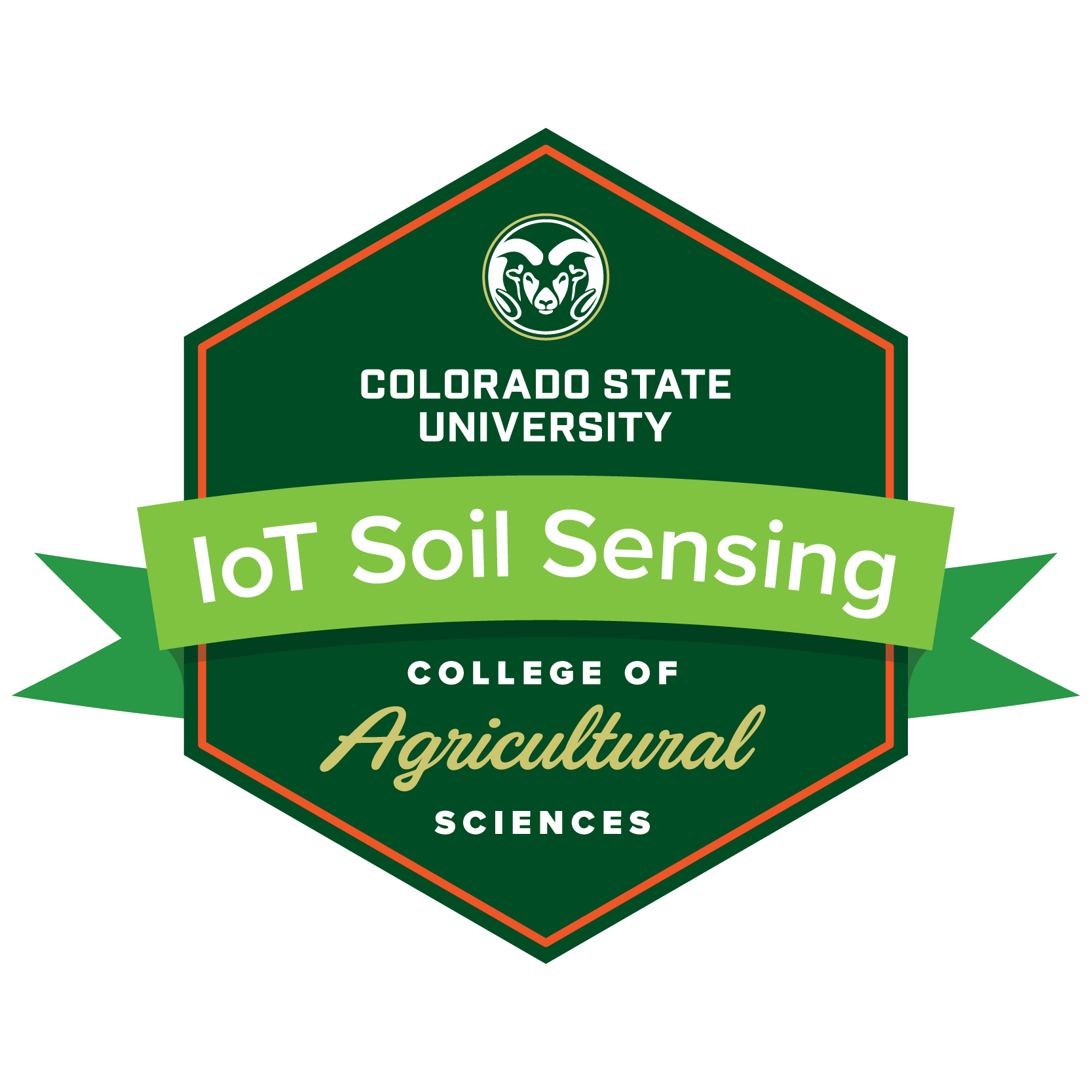
This CSU Badge introduces foundation principles on how internet-of-things (IoT) technology and sensors can be used to provide real-time soil moisture and weather data, allowing growers to improve the timing and amounts of irrigation – saving water and avoiding plant water stress. These general principles are applicable to either landscape or agriculture irrigation sectors, including a wide range of scenarios such as efficiently watering a backyard garden, growing vegetables in a greenhouse, maintaining golf courses and lawns, as well as irrigating large crop fields. Using a kit containing sensors and a wireless IoT microcontroller, participants will gaine hands-on experience building, programming, and using their own IoT (i.e, sensor-based) system to monitor soil water levels based on real-time data. Using an experiential learning approach, learners will gain new knowledge on how IoT sensor technology and the resulting real-time data can be leveraged to improve irrigation decisions and save water. Program was funded in part by the CHS Foundation and Colorado State University.


- Teacher: Tamla Blunt
- Teacher: James Folkestad
- Teacher: Jay Ham
- Teacher: Deana Namuth-Covert
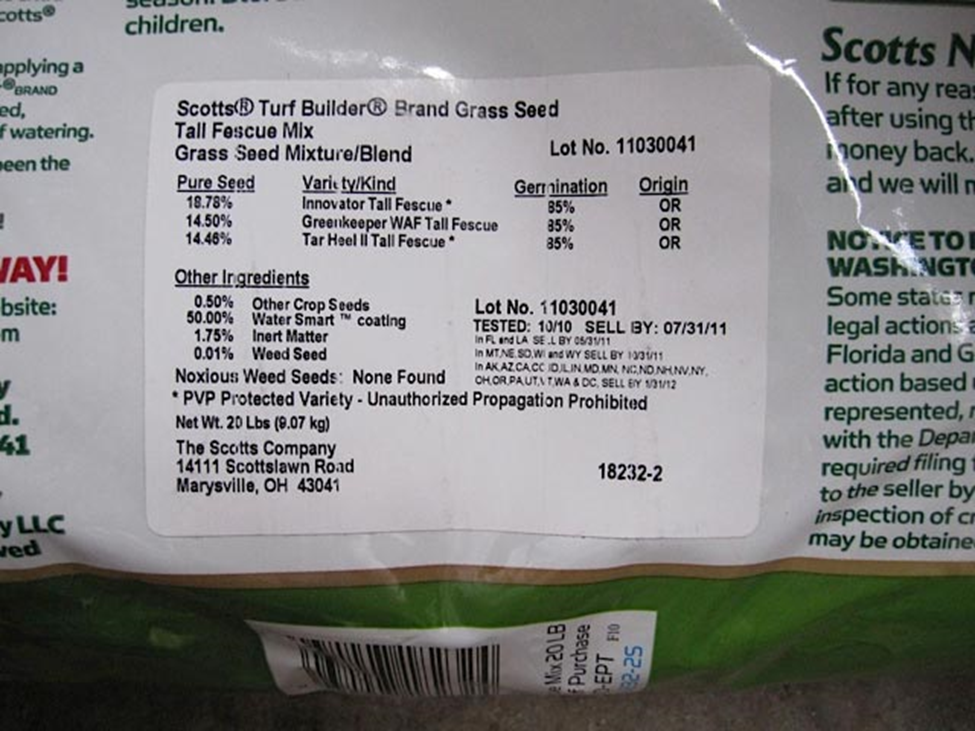
Summary: The Seed industry exists to provide high quality seed to farmers and growers. The value of seed is a measure of its ability to establish the desired field stand at low planting rates, grow into plants which are high-yielding, healthy, and the established type. The livelihood of farmers and the ultimate health of communities relies on the ability of seed to perform and grow into a crop that can be harvested and eaten. A system of laws and regulations has developed over time to protect societies and food systems from liability and risk. A seed conditioner must understand the system of laws and regulations in place, ensure that the conditioning plant and its operation are maintaining seed varietal identity through the entire process and avoid introduction of contaminants. This course is fifth in a series which will walk you through foundational concepts of seed conditioning.
Upskill Credentials: If you finish the entire course including passing the quiz with a score of 80% or better (which you can take up to 3 times) and filling out the short 5 mins feedback survey, then you will earn a badge certificate of completion. This course has been approved for 2 Crop Management CEUs through the national Certified Crop Adviser program.
Acknowledgements: This online micro-credential upskilling course is offered through the CSU Ag Upskilling program. This material is based upon work that is supported by the National Institute of Food and Agriculture, U.S. Department of Agriculture, under award number 2024-68018-42796, administered by Colorado State University. USDA is an equal opportunity employer and service provider. Any opinions, findings, conclusions, or recommendations expressed in this publication are those of the author(s) and do not necessarily reflect the view of the U.S. Department of Agriculture.

The enrollment fee for this course is $50.
You may also choose to purchase all 7 of the CSU Upskilling Seed Conditioning Courses for a discounted price of $300. To do so, click the link below.
- Teacher: Tamla Blunt
- Teacher: Deana Namuth-Covert
- Teacher: Rick Novak
- Teacher: Laura Pottorff

Summary: Seed can serve as a pathway for introducing plant diseases and other pests to new environments and new countries. The risk to agriculture is very high should a new pathogen become introduced and established in an important crop. Seed of over 300 species of plants are moved globally, often several times before being sold commercially. Therefore, the removal or management of seed borne disease is imperative to protect global agriculture and trade. This course is seventh in a series which will walk you through foundational concepts of seed conditioning.
Upskill Credentials: If you finish the entire course including passing the quiz with a score of 80% or better (which you can take up to 3 times) and filling out the short 5 mins feedback survey, then you will earn a badge certificate of completion. This course has been approved for 2 Integrated Pest Management CEUs through the national Certified Crop Adviser program.
Time Required: We estimate it will take you 1-2 hours in total to complete the course. You can work on it at your own pace and do not have to complete it in one setting. Click on the eBook link below to begin.
ADA Accessibility: We have done our best to follow ADA best practices. Let us know if you run into any problems or require further accommodations.
If you have any questions, please contact your instructor, Laura Pottorff, M.S., Director of Seed Program at: Laura.Pottorff@colostate.edu
Acknowledgements: This online micro-credential upskilling course is offered through the CSU Ag Upskilling program. This material is based upon work that is supported by the National Institute of Food and Agriculture, U.S. Department of Agriculture, under award number 2024-68018-42796, administered by Colorado State University. USDA is an equal opportunity employer and service provider. Any opinions, findings, conclusions, or recommendations expressed in this publication are those of the author(s) and do not necessarily reflect the view of the U.S. Department of Agriculture.

The enrollment fee for this course is $50.
You may also choose to purchase all 7 of the CSU Upskilling Seed Conditioning Courses for a discounted price of $300. To do so, click the link below.
- Teacher: Tamla Blunt
- Teacher: Deana Namuth-Covert
- Teacher: Rick Novak
- Teacher: Laura Pottorff
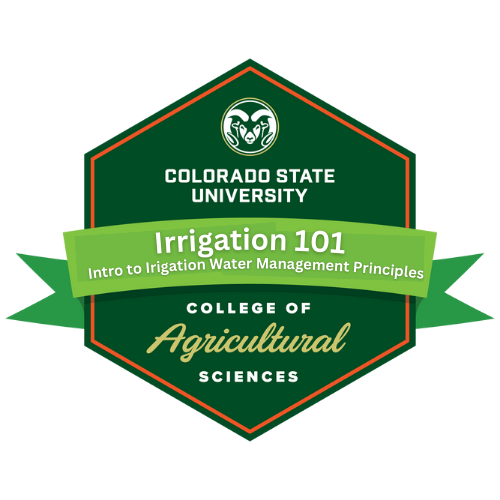
Summary: Irrigation is defined as the watering of land (or other plant growth media) by artificial means to foster plant growth. This can be very costly and the availability of supplemental water may be scarce, so it is important to be able to calculate accurately how much water to apply and when. This lesson will introduce you the underlying concepts you will need to consider.
After completing this lesson, you will be able to:
- Explain how the systems approach can be used to manage water in irrigated systems.
- Identify the fluxes (flows) of water and energy in an irrigated soil-plant-atmosphere system.
- Describe how the Irrigator’s Equation can be used to quantify the four (4) major variables involved in managing irrigation systems.
- Use the principle of conservation of mass to determine the water budget (also called water balance) of a soil-plant-atmosphere (SPA) system.
- Use the principle of conservation of energy to determine the energy budget (also called energy balance) of a SPA system.
Time Required: We estimate it will take you 2 hours in total to complete the lesson. You can work on it at your own pace and do not have to complete it in one setting.
Who Would Benefit: A variety of people will find this upskilling course useful from adults to high school students. This includes careers (or hobbyists) growing plants (ie field crops, greenhouse production, turf and lawns, gardens, etc.) and wishing to save money and water by better timing irrigation applications.
Upskill Credentials: If you finish the entire course including passing a final quiz (which you can take up to 3 times), then you will earn a badge certificate of completion. This has also been approved for 2 Soil and Water Management CEUs through the national Certified Crop Adviser program.
Instructor: Dr. Allan A. Andales is a Professor and Extension Specialist of Irrigation and Water Science in the Department of Soil and Crop Sciences, Colorado State University (CSU). He has a joint appointment in the Department of Civil and Environmental Engineering. Dr. Andales applies principles of soil and water engineering, environmental biophysics, and numerical methods to study the effects of management practices and environmental factors on field hydrology and agricultural production. Experimental data are used to develop computer models and decision support tools that can improve agricultural water use efficiency and water quality. He is a member of the CSU Extension Water Resource Management Team that engages the public in addressing agricultural and urban water issues in Colorado.
ADA Accessibility: We have done our best to follow ADA best practices. Let us know if you run into any problems or require further accommodations.
Acknowledgements: This online micro-credential upskilling course is offered through the CSU Ag Upskilling program. Development was supported in part by funding from the CHS Foundation, administered by Colorado State University (2022). The CHS Foundation, funded by charitable gifts from CHS Inc., is focused on developing a new generation of agriculture leaders for life-long success. Together, with our partners, we are igniting innovation and driving excellence in agriculture education, cultivating high impact programs for rural youth and accelerating potential for careers in agriculture. Learn more at CHS Foundation.


- Teacher: Allan Andales
- Teacher: Tamla Blunt
- Teacher: Deana Namuth-Covert
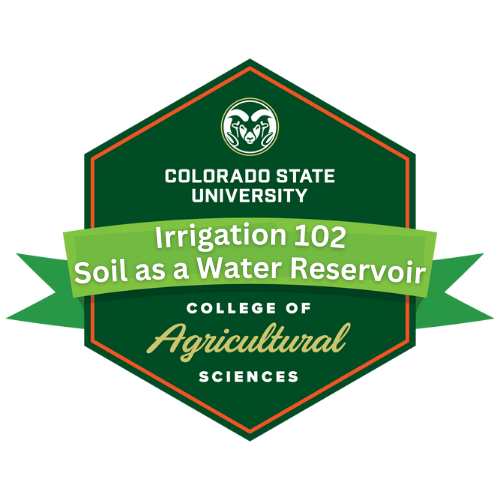
Summary: The goal of irrigation is to add water to the soil where the plant roots are actively growing (the root zone). The soil serves as a water reservoir, from which plants can withdraw water needed for growth. In irrigation management, it is necessary to know the characteristics of the soil in the area that you will be irrigating. These soil characteristics can be used to determine the amount of water in the root zone that is available to the plants.
After completing this lesson, you will be able to:
- Describe the concept of depth of water.
- Determine the depth of water that is available to the plants.
- Use the concept of depth of water to estimate the net irrigation requirement (i.e., soil water deficit) of the soil root zone.
Time Required: We estimate it will take you 2 hours in total to complete the lesson. You can work on it at your own pace and do not have to complete it in one setting.
Who Would Benefit: A variety of people will find this upskilling course useful from adults to high school students. This includes careers (or hobbyists) growing plants (ie field crops, greenhouse production, turf and lawns, gardens, etc.) and wishing to save money and water by better timing irrigation applications.
Upskill Credentials: If you finish the entire course including passing a final quiz (which you can take up to 3 times), then you will earn a badge certificate of completion. It has been approved for 2 Soil and Water Management CEUs through the national Certified Crop Adviser program.
Instructor: Dr. Allan A. Andales is a Professor and Extension Specialist of Irrigation and Water Science in the Department of Soil and Crop Sciences, Colorado State University (CSU). He has a joint appointment in the Department of Civil and Environmental Engineering. Dr. Andales applies principles of soil and water engineering, environmental biophysics, and numerical methods to study the effects of management practices and environmental factors on field hydrology and agricultural production. Experimental data are used to develop computer models and decision support tools that can improve agricultural water use efficiency and water quality. He is a member of the CSU Extension Water Resource Management Team that engages the public in addressing agricultural and urban water issues in Colorado.
ADA Accessibility: We have done our best to follow ADA best practices. Let us know if you run into any problems or require further accommodations.
Acknowledgements: This online micro-credential upskilling course is offered through the CSU Ag Upskilling program. Development was supported in part by funding from the CHS Foundation, administered by Colorado State University (2022). The CHS Foundation, funded by charitable gifts from CHS Inc., is focused on developing a new generation of agriculture leaders for life-long success. Together, with our partners, we are igniting innovation and driving excellence in agriculture education, cultivating high impact programs for rural youth and accelerating potential for careers in agriculture. Learn more at CHS Foundation.
- Teacher: Allan Andales
- Teacher: Deana Namuth-Covert
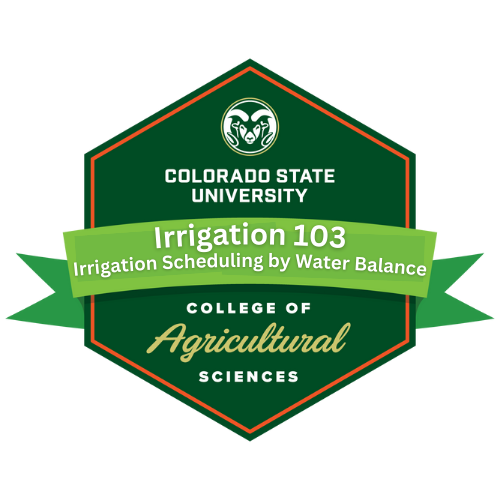
Summary: To effectively utilize limited irrigation resources in the most cost-effective manner requires balancing the inputs and outputs of water fluxes, as well as water that is stored in the soil profile. Best irrigation management scheduling practices focus on water balance in the rootzone because that is where the plant/crop is extracting water (and nutrients) from the soil. It is here we estimate the irrigation water requirements to maintain healthy plants. Decisions on when and how much irrigation water to apply depends on the soil water deficit and the management-allowed depletion (MAD). This lesson will walk you through each of these concepts including real world problem scenarios.
After completing this lesson, you will be able to:
- Use the water balance of the root zone to estimate the irrigation water requirement.
- Make irrigation decisions by comparing the soil water deficit to the management-allowed depletion.
Time Required: We estimate it will take you 2 hours in total to complete the lesson. You can work on it at your own pace and do not have to complete it in one setting.
Who Would Benefit: A variety of people will find this upskilling course useful from adults to high school students. This includes careers (or hobbyists) growing plants (ie field crops, greenhouse production, turf and lawns, gardens, etc.) and wishing to save money and water by better timing irrigation applications.
Upskill Credentials: If you finish the entire course including passing a final quiz (which you can take up to 3 times), then you will earn a badge certificate of completion. This has also been approved for 2 Soil and Water Management CEUs through the national Certified Crop Adviser program.
Instructor: Dr. Allan A. Andales is a Professor and Extension Specialist of Irrigation and Water Science in the Department of Soil and Crop Sciences, Colorado State University (CSU). He has a joint appointment in the Department of Civil and Environmental Engineering. Dr. Andales applies principles of soil and water engineering, environmental biophysics, and numerical methods to study the effects of management practices and environmental factors on field hydrology and agricultural production. Experimental data are used to develop computer models and decision support tools that can improve agricultural water use efficiency and water quality. He is a member of the CSU Extension Water Resource Management Team that engages the public in addressing agricultural and urban water issues in Colorado.
ADA Accessibility: We have done our best to follow ADA best practices. Let us know if you run into any problems or require further accommodations.
Acknowledgements: This online micro-credential upskilling course is offered through the CSU Ag Upskilling program. Development was supported in part by funding from the CHS Foundation, administered by Colorado State University (2022). The CHS Foundation, funded by charitable gifts from CHS Inc., is focused on developing a new generation of agriculture leaders for life-long success. Together, with our partners, we are igniting innovation and driving excellence in agriculture education, cultivating high impact programs for rural youth and accelerating potential for careers in agriculture. Learn more at CHS Foundation.
- Teacher: Allan Andales
- Teacher: Deana Namuth-Covert
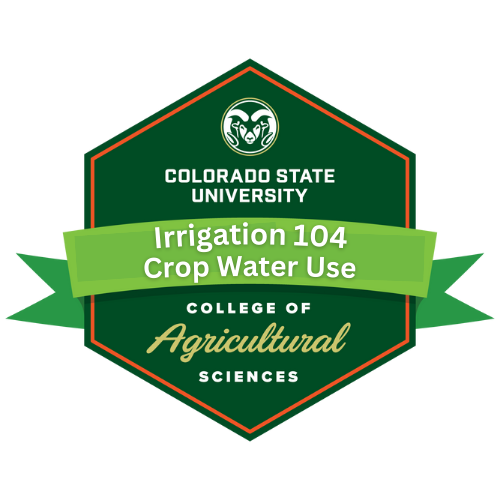
Summary: When making decisions about when to irrigate a crop, no matter the specific plant or scenario, it is important to take into consideration evapotranspiration rates which provide an estimate of water flux out of your system. The challenge is that evapotranspiration varies a lot depending on the specific plant, its growth stage plus changing weather (or greenhouse) conditions. Precision agriculture scientists have been able to characterize two reference crop values as a way to standardize evapotranspiration calculations based on weather data. In this lesson you will learn what is meant by a reference crop, crop coefficient, and water stress coefficient and how you can use these to inform your irrigation management decisions.
Time Required: We estimate it will take you 2 hours to complete the lesson. You can work on it at your own pace and do not have to complete it in one setting.
Who Would Benefit: A variety of people will find this upskilling course useful from adults to high school students. This includes careers (or hobbyists) growing plants (ie field crops, greenhouse production, turf and lawns, gardens, etc.) and wishing to save money and water by better timing irrigation applications.
Upskill Credentials: If you finish the entire course including passing a final quiz (which you can take up to 3 times), then you will earn a badge certificate of completion. It has been approved for 2 Soil and Water Management CEUs through the national Certified Crop Adviser program.
Instructor: Dr. Allan A. Andales is a Professor and Extension Specialist of Irrigation and Water Science in the Department of Soil and Crop Sciences, Colorado State University (CSU). He has a joint appointment in the Department of Civil and Environmental Engineering. Dr. Andales applies principles of soil and water engineering, environmental biophysics, and numerical methods to study the effects of management practices and environmental factors on field hydrology and agricultural production. Experimental data are used to develop computer models and decision support tools that can improve agricultural water use efficiency and water quality. He is a member of the CSU Extension Water Resource Management Team that engages the public in addressing agricultural and urban water issues in Colorado.
ADA Accessibility: We have done our best to follow ADA best practices. Let us know if you run into any problems or require further accommodations.
Acknowledgements: This online micro-credential upskilling course is offered through the CSU Ag Upskilling program. Development was supported in part by funding from the CHS Foundation, administered by Colorado State University (2022). The CHS Foundation, funded by charitable gifts from CHS Inc., is focused on developing a new generation of agriculture leaders for life-long success. Together, with our partners, we are igniting innovation and driving excellence in agriculture education, cultivating high impact programs for rural youth and accelerating potential for careers in agriculture. Learn more at CHS Foundation.


- Teacher: Allan Andales
- Teacher: Deana Namuth-Covert
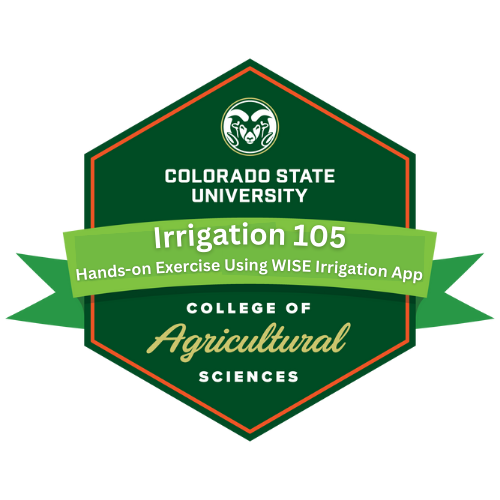
Summary: No matter the particular plant scenario you are working with (ie field crop, pastureland, Greenhouse business, turf grass, home garden and landscaping, etc.) being able to accurately estimate the water needs and timing of irrigation will help lower costs, as well as preserve limited water supplies. In this lesson you will learn how to use a specific irrigation app which has been developed by a group of public researchers and is free for your use. This app, along with the foundational irrigation principles you learned in previous lessons and/or from your previous knowledge will help you maximize the effects of your irrigation applications while minimizing costs. This lesson uses a Colorado field example.
After completing this lesson, you will be able to:
- Set up a field in the Water Irrigation Scheduler for Efficient Application (WISE) App to schedule irrigations during one growing season.
- Input irrigation amounts in WISE based on estimated soil water deficits (D) and the crop’s management allowed depletion (MAD) during one growing season.
- Interpret the WISE water balance outputs.
Time Required: We estimate it will take you 2 hours to complete the lesson. You can work on it at your own pace and do not have to complete it in one setting.
Who Would Benefit: A variety of people will find this upskilling course useful from adults to high school students. This includes careers (or hobbyists) growing plants (ie field crops, greenhouse production, turf and lawns, gardens, etc.) and wishing to save money and water by better timing irrigation applications.
Upskill Credentials: If you finish the entire course including passing a final quiz (which you can take up to 3 times), then you will earn a badge certificate of completion. It has been approved for 2 Crop Management CEUs through the national Certified Crop Adviser program.
Instructor: Dr. Allan A. Andales is a Professor and Extension Specialist of Irrigation and Water Science in the Department of Soil and Crop Sciences, Colorado State University (CSU). He has a joint appointment in the Department of Civil and Environmental Engineering. Dr. Andales applies principles of soil and water engineering, environmental biophysics, and numerical methods to study the effects of management practices and environmental factors on field hydrology and agricultural production. Experimental data are used to develop computer models and decision support tools that can improve agricultural water use efficiency and water quality. He is a member of the CSU Extension Water Resource Management Team that engages the public in addressing agricultural and urban water issues in Colorado.
ADA Accessibility: We have done our best to follow ADA best practices. Let us know if you run into any problems or require further accommodations.
Acknowledgements: This online micro-credential upskilling course is offered through the CSU Ag Upskilling program. Development was supported in part by funding from the CHS Foundation, administered by Colorado State University (2022). The CHS Foundation, funded by charitable gifts from CHS Inc., is focused on developing a new generation of agriculture leaders for life-long success. Together, with our partners, we are igniting innovation and driving excellence in agriculture education, cultivating high impact programs for rural youth and accelerating potential for careers in agriculture. Learn more at CHS Foundation.


- Teacher: Allan Andales
- Teacher: Deana Namuth-Covert

